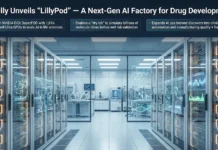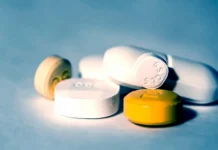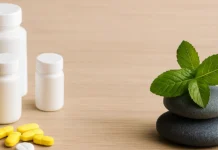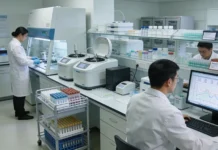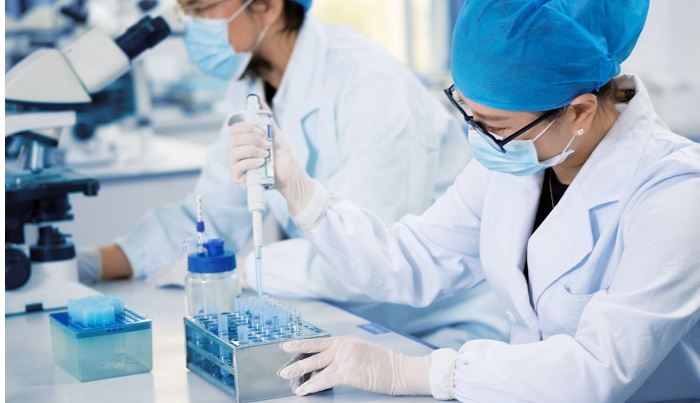Worldwide pharmaceutical companies look to advance the development of molecules from the laboratory to the clinic and then market them as soon as possible. All this must go on to unfold sans sacrificing the quality of the product, efficiency when it comes to processing, and, of course, the safety of patients.
In order to achieve this objective, companies should go ahead and navigate the intricacies when it comes to business planning, cell line development, process development, tech, regulatory, and risk assessment. All this needs the exact mix in terms of resources, talent, and expertise.
With regards to this, APAC countries like Singapore and South Korea are indeed standouts. Especially there are biopharma hubs that look to offer necessary research as well as development activities within the biopharmaceutical sector.
It is well to be noted that in many scenarios, all this can be a biopharma scale-up lab having varied areas in terms of cell line development, clone selection, media screening, upstream as well as downstream process development, as well as small-scale production in terms of 200L pre-clinical studies.
The hubs also happen to have large-scale manufacturing facilities as well as the capacity to offer end-to-end biopharmaceutical manufacturing services, which helps domestic and foreign players rapidly enter the global biologics and biosimilars market and at the same time reduce the time it goes on to take to get the products into the market.
Bioclusters happen to have top-notch biopharma production capacity
For instance, Invest Korea cites that sector-leading biopharma companies such as Janssen Pharmaceuticals, Saint Gobain, Celltrion, Dong-a Socio Group, Samsung Biologics, and Binex all happen to be located within the Songdo Biocluster.
As noted by the Singapore Economic Development Board, pharma sector leaders like Novartis, Pfizer, MSD, Sanofi, AbbVie, and Amgen have gone on to setup global manufacturing hubs across Singapore where they can go ahead and create a wide range of products. There are many who happen to be engaged in a constellation of services, like contract manufacturing organizations- CMOs of biopharmaceuticals or developing as well as producing biosimilars that are based upon proprietary tech.
When we talk of contact manufacturing organizations, they go on to help the biopharmaceutical and biotech companies to manufacture drug substances that are innovative. Their offering happens to include commercial production, formal stability, drug development as well as formulation development, pre-formulation, and, of course, registration batches.
The strength when it comes to these bioclusters happens to lie within their production capacity. It is worth noting that biopharmaceutical production capacity when it comes to Songdo happens to be 560,000 ltrs, which is beyond San Francisco at 440,000 ltrs, Singapore at 270,000 ltrs, and Ireland at 230,000 ltrs.
As biopharmaceuticals happen to be made from cell cultures, it is indeed crucial to import as well as export products before the products face deterioration during shortages as well as the transportation process. All this goes on to mean that there is indeed a requirement for nearby airports as well as ports so as to transport chilled goods as well as frozen logistics. And then there are standouts again, such as Korea’s Incheon International Airport and Singapore’s Changi Airport, both of which have state-of-the-art logistics facilities. Apart from this, local government efforts happen to be made for greenfield sites so as to come up with more biocluster facilities.
Greenfield: An Introduction
Greenfield refers to buildings that are constructed on lands that are underdeveloped. These are the lands where there wasn’t any sort of previous development and that they were green. The word green in this context happens to be synonymous with NEW which talks of new construction projects. Such kinds of greenfield developments happen to be mostly made up of multinational companies that start a new venture right from scratch.
It is therefore expected that in the next decade, clusters across Korea, Singapore, and the APAC region are going to double so as to meet the rising demand globally. Moreover, local governments will offer new support as well as incentives for domestics, along with international collaborations.


